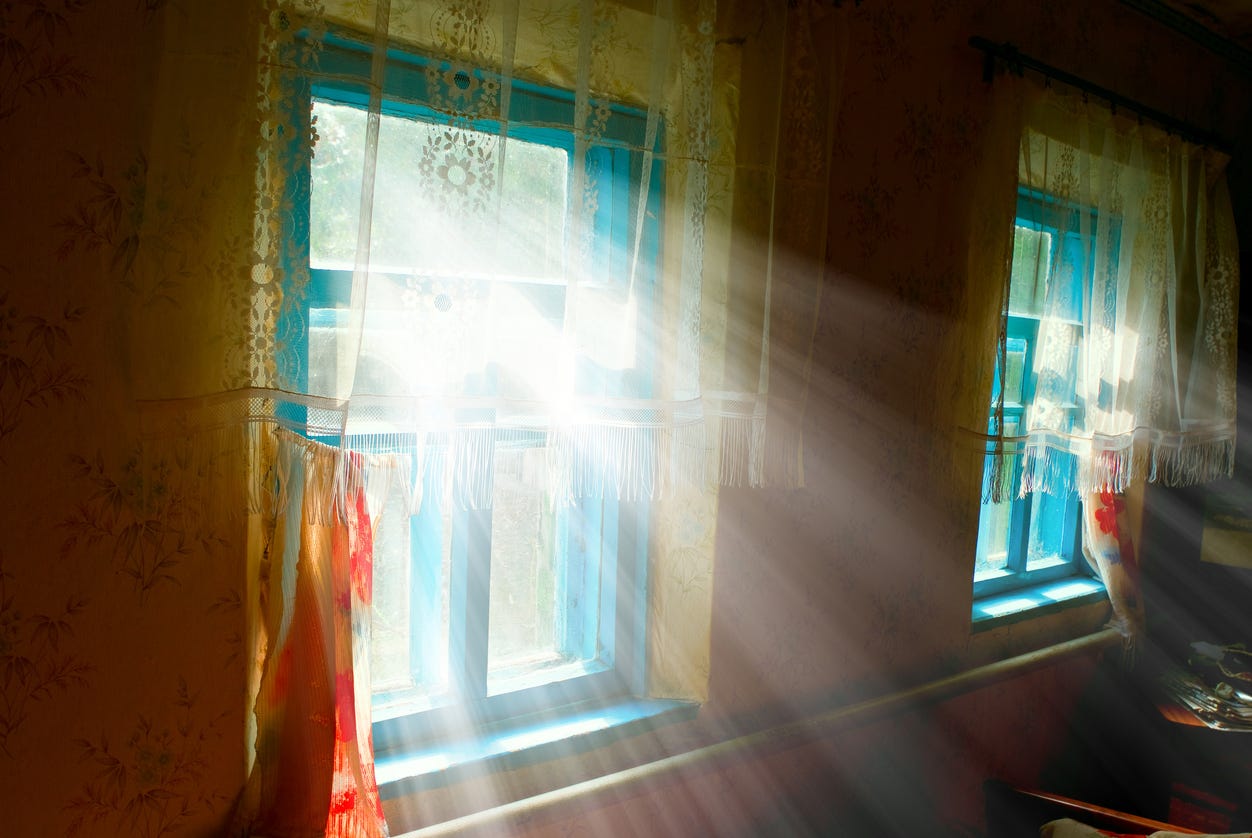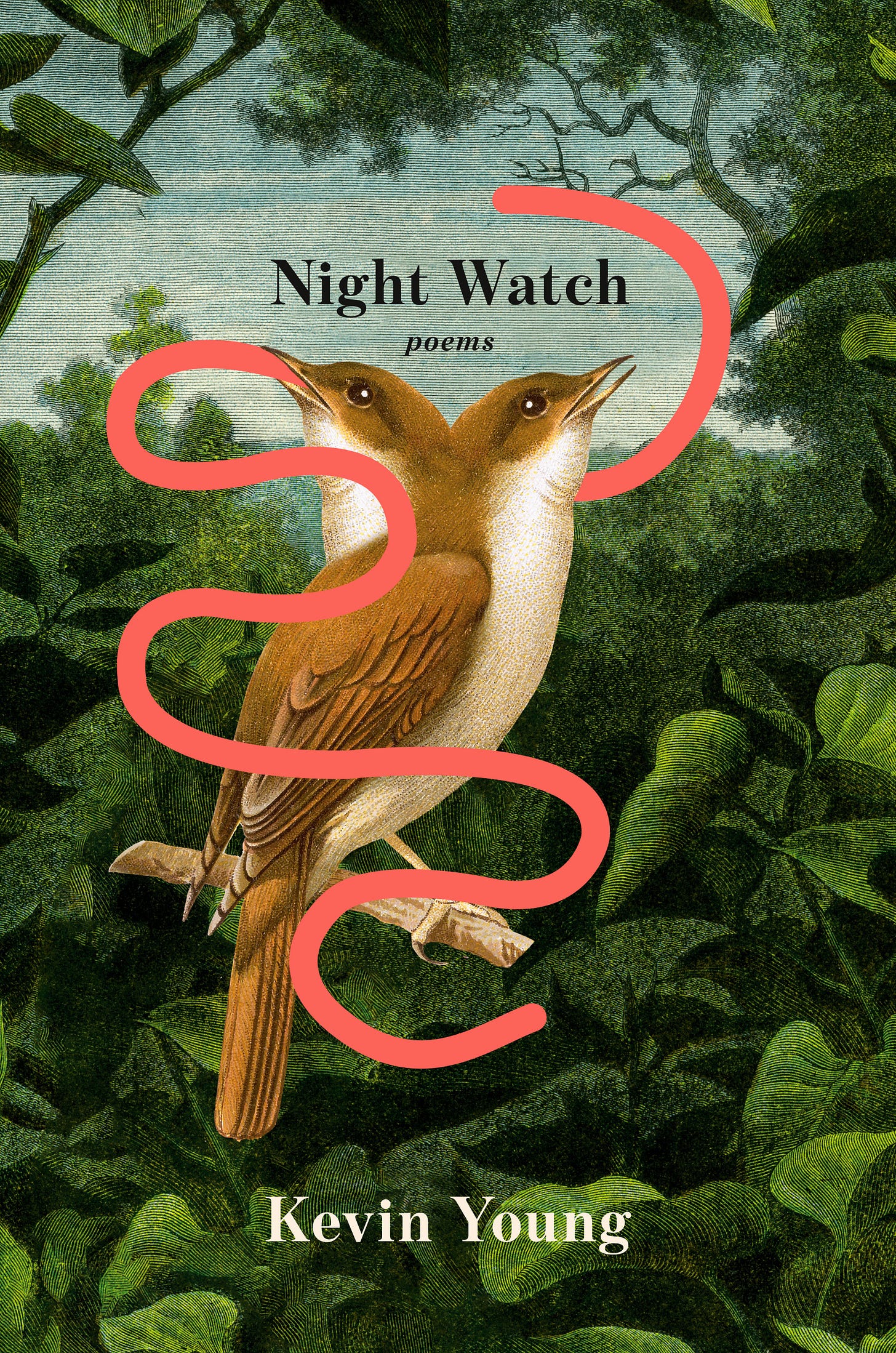Was it all a dream?
"Sunbirth" author An Yu will answer the Ink Book Club's lingering questions in this week's live conversation -- and announcing our September pick!
Join us on Wednesday, August 27, at 12:30 p.m. Eastern to discuss Sunbirth, by An Yu—with the author herself! Tune in from your desktop at The Ink or from a phone or tablet with the Substack app. The Book Club is open to all supporting subscribers of The Ink, so join us today!
The wait is nearly over. This Wednesday, we finally get to meet Sunbirth author An Yu, who will speak to us from her home in Hong Kong.
When we first contacted An Yu to let her know we were selecting Sunbirth for The Ink Book Club, we asked her about some of her literary influences. She mentioned writers such as Jean Rhys, Elena Ferrante, and Han Kang, but she also noted that many of those who spark her imagination are visual artists—filmmakers, fashion designers, and painters. So it makes sense that it was an image of the Beacons—the mini sun-heads of the novel—that first gave An Yu the idea for the novel.
Some of the questions I want to put to her: Did the image of the Beacons come to her in a dream? From what source does she think they were derived? Also, what is the vanishing sun a metaphor for? Or is it meant to be literal—that in Five Poems Lake, the Sun is actually disappearing, “sliver by sliver”?
The Sun’s dimming seems to eclipse hope for Sunbirth’s characters, who can no longer envision a future. But does the appearance of sunlight in the novel’s closing pages symbolize hope’s resurrection? Are the sisters, twelve years after their father’s death, emerging from the darkness of grief? Or is there a twist at the end along the lines of the one book club member Teela suggested, when our unnamed protagonist awakens to “warmth on my cheek and the morning light shining in my eyes”?
We’re ready to get some answers from Sunbirth’s ingenious author. Thank you, An Yu, for the hours of pleasure and puzzling you’ve provided.
And now….The Ink Book Club’s September selection is Night Watch, by New Yorker poetry editor Kevin Young. Young also hosts the Poetry Podcast and is the former Andrew W. Mellon Director of the Smithsonian’s National Museum of African American History. He’s authored sixteen works of poetry and prose, and edited eleven anthologies, including the Library of America’s African American Poetry: 250 Years of Struggle and Song.
Young says he began writing this volume nearly twenty years ago. He’d begun composing poems about his late father, whose death especially informs a poem like “Cormorant,” which opens the book. But, Young says, “the poems became about loss in a larger sense.” And “along the way, a number of figures started appearing throughout the book, whether poets like John Keats or Samuel Beckett; the conjoined twins Millie and Christine McCoy—born enslaved and later performing in freedom—and family figures like my mother and her folk sayings.”
We couldn’t be more thrilled to feature this extraordinary volume and its author, and to announce that Kevin has generously agreed to meet live with us twice during the month: On Wednesday, September 3, at 12:30 p.m., and then again on Wednesday, September 24, also at 12:30 p.m. Night Watch’s official publication date is just a week away, on September 2, but it’s already available for pre-order, or you can buy it now at your local bookstore.
Ahead of our first conversation with Young, we asked him to describe the role poetry plays in difficult times. Here’s what he had to say:
Poetry often offers us a balm, and never more so than in times of trouble—whether personal or large scale. The poet Lucille Clifton always used to say, poetry is meant to comfort the afflicted and afflict the comfortable. For me, that means poetry provides words where often there are none–as in grief–but also in providing witness to and reminders of our humanity. For me, poetry especially can render how the everyday can be extraordinary, and how the extraordinary is an everyday occurrence. A meal, a baby’s babble, “this light lifting // up over the ridge” as one poem in Night Watch has it: these things can be redemptive on their own.






